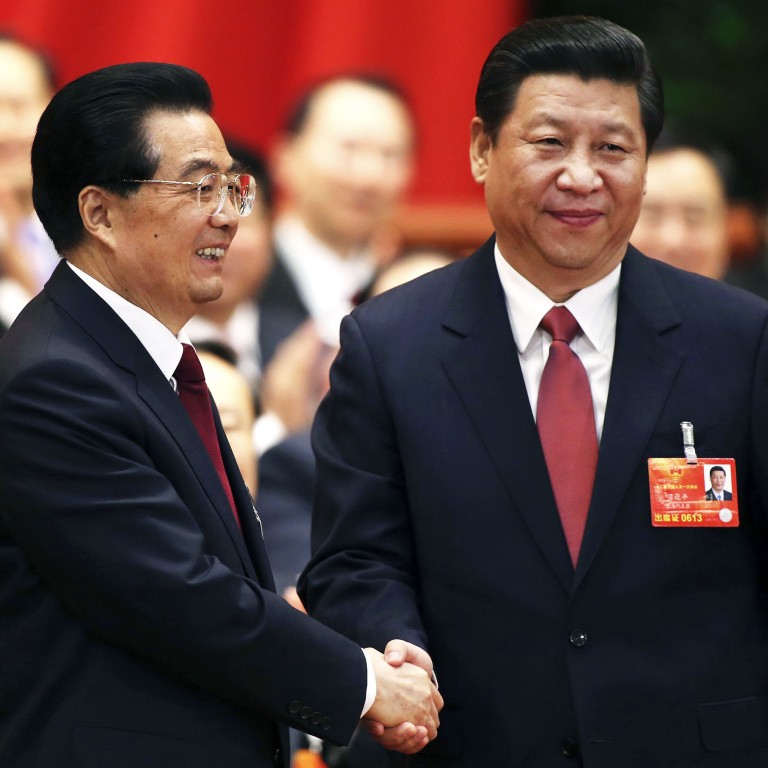
Economic blueprint without political reform in China a ‘lethal’ step: liberals
Party's bold communiqué on market reform does nothing to address burning problems of corruption and inequality, academics say
The market reform drive set out in the Communist Party’s third plenum, coupled with the leadership’s consolidation of power, is only likely to deepen social problems in the absence of political reform, say liberal party veterans and scholars.
The effectiveness of market reform is also likely to be limited by the party’s conservative ideology, they say.
The communiqué pledged to also strengthen the independence of the judiciary and improve the anti-corruption mechanism and announced the creation of two powerful organs – one to spearhead reforms and another to formulate a co-ordinated national security strategy.
Du Daozheng, a reformist party elder and publisher of liberal political magazine Yanhuang Chunqiu, said he was relieved the communiqué pushed market reform one step forward but warned that burning issues such as corruption and inequality would remain without political reforms.
“If there is no political and democratic reform, you cannot tackle corruption,” he said.
He said he had been “extremely anxious” about the leadership’s overtly conservative rhetoric in recent months but was heartened the communiqué endorsed the past three decade’s era of “reforming and opening” instead of the regime’s first three decades under Mao Zedong.
A day before the opening of the third plenum, a prominent article in the People’s Daily said Mao’s past mistakes should not be exaggerated, echoing Xi’s rhetoric earlier this year that “one should not use post-reform history to negate the pre-reform years”.
Xi’s overtly pro-Maoist tone, his revival of Mao-era slogans and practices such as the “rectification” anti-graft campaign and a “mass line” ideology campaign, as well as the denouncement of Western democratic ideals and the escalated crackdown on government critics have alarmed many liberals.
The good thing about the communiqué is that it has blocked the road of rolling backwards.
“The good thing about the third plenum communiqué is that it has blocked the road of rolling backwards,” Du said.
“But they have not resolved the fundamental problems … it’s still one-party rule and state-owned enterprises monopolise everything. There is monopoly of thought, politics and the economy.”
Veteran journalist and historian Yang Jisheng said further market reform without political change would only exacerbate the problems brought by crony capitalism such as the widening income gap, social inequality and corruption.
“Crony capitalism has taken a hold over the market ... there is no check on power and money flow towards those with power,” he said.
“If Xi doesn’t carry out political reform, the mistakes from the Deng [Xiaoping] era would deepen … social conflicts would sharpen,” he said.
Yang was also sceptical as to how far market reform measures could be implemented in the face of powerful vested interests.
Professor Wu Guoguang, a former government adviser and now a political scientist at the University of Victoria in Canada, said the combination of further power consolidation and marketisation without the check and balance of rule of law and democracy was a lethal one.
“The outcome of the ‘China model’ such as social segregation, environmental pollution and moral disintegration would only get worse,” he said.
Du Guang, a retired professor at the Central Party School, said the effectiveness of market reform would be likely limited by the party’s emphasis on communist ideology.
The plenum stressed the “comprehensive deepening of reform” but also said “the great banner of socialism with Chinese characteristics” must be upheld and Marxism-Leninism and Mao thought remained the guiding principles.
It called for the need to support the private sector but also emphasised “the leading role of the state-owned economy”.
“The communiqué could not escape the limits of Mao thought – the economy is still socialism market economy, it’s party-led and under the one party system, and it’s dominated by state-owned enterprises, so it cannot fully become a market economy,” he said.
“There is good stuff in the communiqué but if they are to be materialised it must break through the limit of ideology,” he said.
Du Guang said the success of the implementation of market reform drive would depend on “the tug of war between reform and anti-reform forces”.
Meanwhile, party veterans say Xi’s powerful role at the helm of the central leading group on economic reforms and a national security committee could be a double-edged sword.
Analysts have said the two posts would give Xi more power than his two predecessors, Hu Jintao and Jiang Zemin.
“It’s a risky game,” Du Daozheng said. “If it goes in the right direction, then it could do a lot of good, but if not, things could worsen.”
He cited the positive example of late Taiwanese President Chiang Ching-kuo, who used his power to transform authoritarian rule to democracy and political openness in his later years.
Xu Youyu, a retired professor at the Chinese Academy of Social Sciences, said he worried the national security committee would oversee harsher suppression of speech and government critics.
“But no matter how hard the authorities want to suppress, they can’t just do what they want anymore because there is consensus in society on constitutional rule and the protection of free speech,” he said.
“These are things that you can’t just get rid of by denouncing.”

